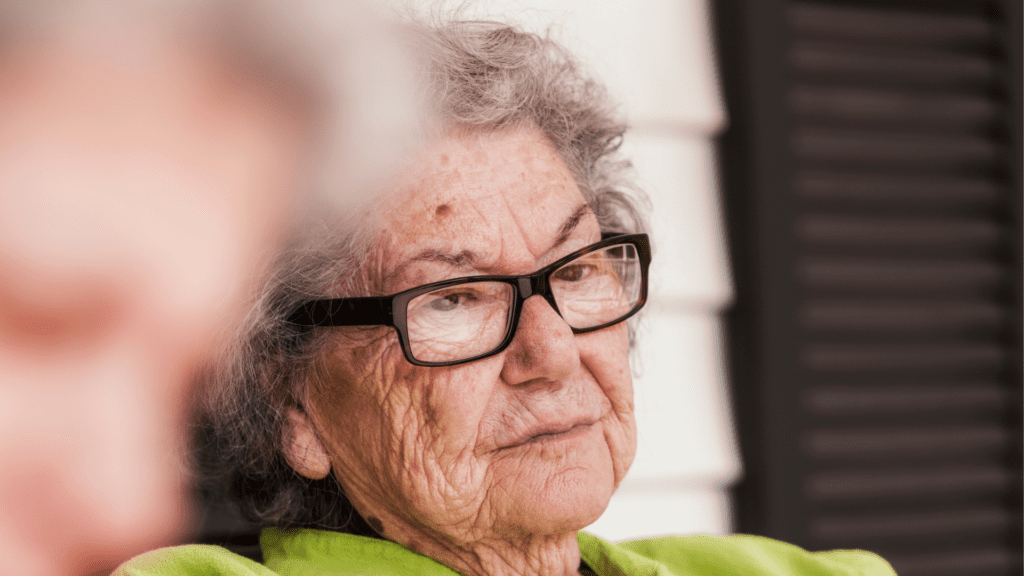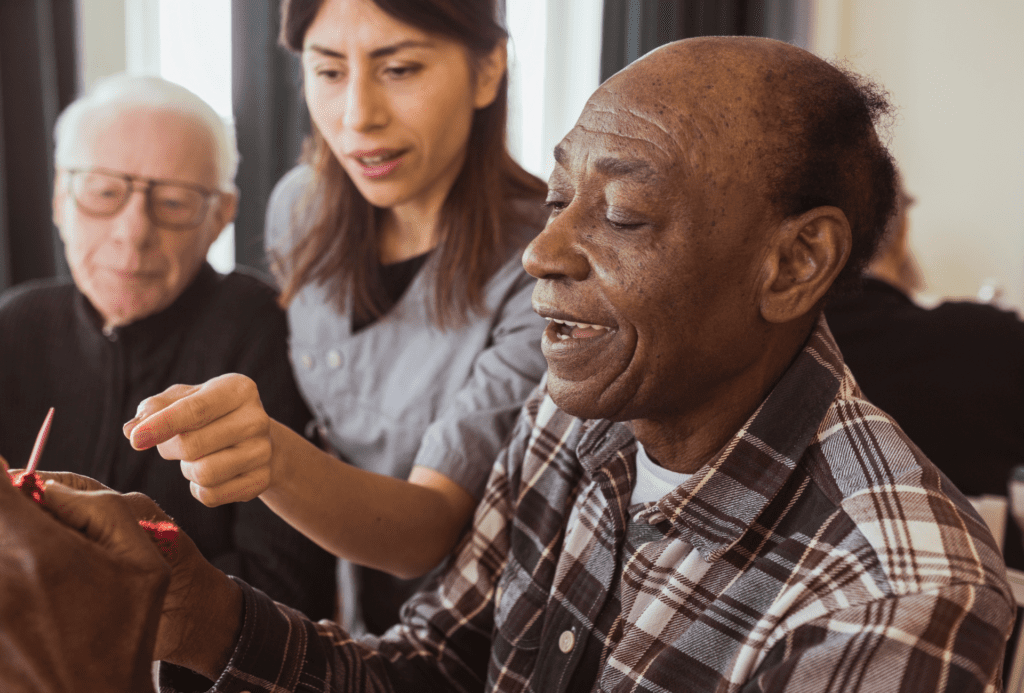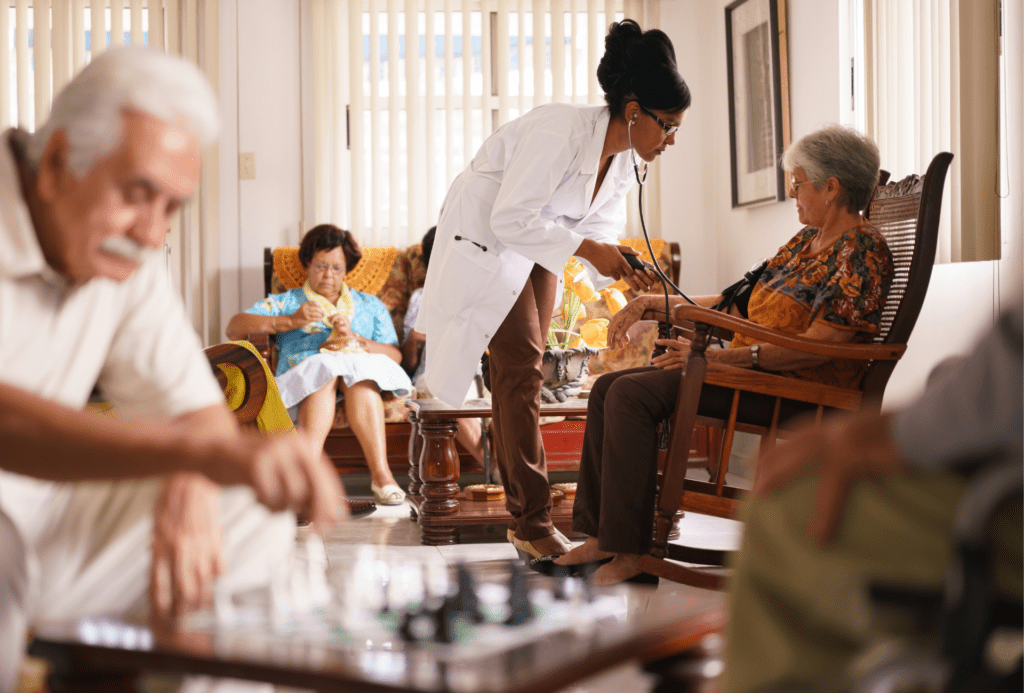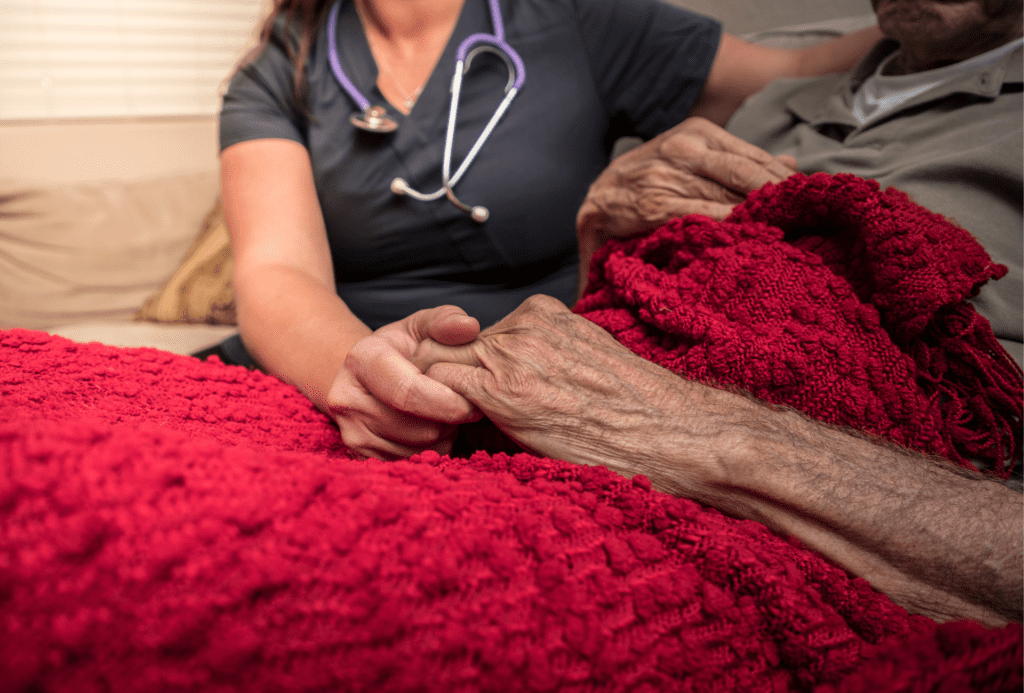Help Needed by Stage
Caring for a person with dementia is a journey that can last many years. It’s important to understand the three main stages of dementia in order to access appropriate help and support as the condition progresses. The following stages are broadly defined and no two people will experience dementia the same way or in the direct pathway suggested.
Early Stage or Mild Dementia

Early stage dementia simply means the symptoms are mild and the person is still able to manage their day to day routine and has the capacity to make their own decisions. This is different from early onset or young onset, which means a person who is diagnosed with dementia younger than age 65 making up less than 5% of the population of people with dementia.
Age is the biggest risk factor for dementia, with people over 80 at highest risk. However, that does not mean everyone will get dementia as they age. The challenges faced by people diagnosed under 65 years of age may vary compared to over 65 years of age. The younger person may be more recently the primary breadwinner, face difficult decisions about work, and find it harder to obtain a diagnosis and receive appropriate services. The following descriptions of the stages are helpful regardless of age.
What does someone with early stage dementia need?
A person with early stage dementia needs to be treated just like they always have been – as a full contributing person with purpose and dignity and a life to be fully lived just like everyone else. People with early stage dementia have said that they feel treated differently after a diagnosis. Other people stop believing them and including them in social activities. This can be difficult on the person with dementia and the caregiver.
People with early stage dementia can struggle with bill paying, showing up to appointments on time, and could experience problems with wayfinding – especially where signage is unclear. However, the person’s physical capacity to care for themselves and do regular social activities is less affected. They may need help initiating a task, but are still able to do a task for themselves.

Sometimes caregivers can step in too soon to take over a task for a person before they have fully lost that ability. It can be hard to identify when a skill is lost to dementia or when someone is just having a bad day. We can all be forgetful at times, but when someone with a dementia diagnosis forgets, it is often assumed that its part of the dementia diagnosis. In the early stage, caregivers can give the person space to do things on their own for as long as possible.
Some helpful tips and activities in the early stage include:
- Labeling kitchen cabinets so the person can still make their own sandwich, or a cup of coffee.
- Organizing the closet so the person can dress themselves more easily.
- Identifying any trip hazards such as extension cords and throw rugs to reduce the chance of falling.
- Helping the person schedule their bills to be automatically paid on the due dates.
- Modifying technology like cell phones and calendars to help the person be more independent.
- Arranging the person’s medication in a pill organizer – either manual or one that uses technology to open the lid at the time the medication is supposed to be taken.
There are some areas in the United States where people with dementia can participate along with their caregivers in support groups and early stage programs. Contact your local council on aging or Alzheimer’s organization to inquire about programs specifically designed for people with dementia. Learn more and find organizations near you at Eldercare Locator.
Start having discussions about the future

Another important task to accomplish while a person’s symptoms are mild is to have a conversation about decisions for future medical, health care, and financial needs. Depending on which state you live in, there are typically two kinds of documents – a Power of Attorney and a Healthcare (or Durable) Power of Attorney.
Both documents appoint a primary person who is able to make decisions for the person when he/she is no longer able to. A Power of Attorney appoints a designated person to represent financial interests and the Healthcare Power of Attorney appoints a designated person to make healthcare decisions on someone’s behalf. An Advance Directive or Living Will is another document that helps people share their choices for what kind of health care they want in the future. Contact Eldercare Locator to inquire about local referrals for legal aid, elder law attorneys and state-specific forms. Don’t forget to fill out these forms for the person with dementia and yourself. If something happens to you, someone will need to be appointed to care for your loved one.
Persons living with dementia are usually capable of more than we can imagine.
– Bob DeMarco

Moderate or Middle Stage Dementia

A person with moderate or middle stage dementia is experiencing symptoms which impact daily life to the degree that another person or helper is needed more consistently. This is the time when the person’s primary caregiver begins to help with more personal care needs. The person can also experience more noticeable behaviors where the caregiver may need to intervene in some way.
Personal Care
When a person moves into the moderate stage of dementia, they need more assistance in their personal care tasks such as grooming, bathing, toileting and eating. In many cases the person is still capable to do these tasks but might need some cueing and assistance. To communicate with a person in the moderate stage of dementia, speak one thought or sentence at a time. Keep your language simple. Ask questions that require yes or no answers so that the person is included in decision-making even if they are unable to produce a whole thought.
Some tips to help a person with moderate dementia include:
- Take your time, slow down and enjoy the precious moments with the person. People with moderate dementia can still enjoy life.
- Focus on the person’s strengths and interests. Activities that include nature, music, or modified puzzles or games can still be enjoyable. Hobbies such as gardening may have to be adapted to smaller areas or pots, but can still be successful.
- Establish a routine that includes personal care and social activities. Incorporating social activities into the routine will give you and the person something to look forward to and reduce loneliness and isolation.
Behaviors
Caregivers also find a person with dementia may experience different behaviors such as agitation, repetitive speech and/or actions, emotional outbursts, inappropriate undressing, sexual behavior, or toileting in unusual places. This is not an all-inclusive list of behaviors because each person with dementia is unique.

In general, caregivers need to know that some behaviors are part of the dementia progression and some are a different way the person receiving care is communicating a need. For example, fidgeting or toileting in unusual places may mean that the person needs to use the bathroom but is unable to find it on their own. Caregivers must learn to become detectives in investigating what the possible cause of the behavior might be.
Things to look for include:
- Is the room too hot or too cold when the person is bathing?
- Is the person experiencing a pain or ache like a toothache that is causing them to not want to eat or push away food?
- Has the person been approached from behind and become startled which resulted in a severe reaction?
- Has the person experienced a sudden change in personality or behavior? This can mean something more medical is going on which may be causing the behavior.
Keeping an open mind about the possible cause of a behavior will help you reduce frustration for yourself and the person needing care. Another way to look at it is to put yourself in the person’s shoes. What would having dementia feel like if you were struggling to communicate your needs? From the person with dementia’s perspective, the person is trying to figure out their new world as best as they can.
Not every behavior is caused by dementia and not every behavior means the person is purposely testing the caregiver. Talking through changes in behavior with another caregiver or an expert can help relieve some of your stress. Join a support group or talk to an expert. Learn more about which organizations and services you can find experts in Aging and Dementia Services.
Late Stage Dementia

When someone reaches the late stage of dementia, the person is totally dependent on others for help with their personal care needs and requires constant supervision. There is great difficulty communicating and the person may no longer recognize family members. The person may have difficulty with eating and may experience loss of bowel and bladder control. Although the person may be experiencing more severe symptoms, maintaining activities such as music, massage, nature, reading and talking to the person remain important.
The person may be fully ambulatory or bed bound – this varies from person to person – and what other medical conditions may be primary or secondary to the dementia. It’s important to note that while people can die of dementia, most people will die of other causes such as cancer, heart disease, or stroke. When the person becomes totally dependent, regardless of which condition is causing it, it may be time to discuss palliative care and hospice options.
Palliative Care

Palliative care is specialized care for people with serious illnesses. It focuses on the person’s whole wellbeing and can be utilized throughout the dementia journey, but is most commonly requested in late stage dementia. In addition to doctors and nurses – social workers, nutritionists, and chaplains can make up the palliative care team.
Medical treatment, if available, can coexist with palliative care. Sometimes a person’s other medical conditions can be overlooked. Having a palliative care specialist on the team may help identify problems that may not be seen by the usual care team. One example is a person’s discomfort from arthritis, if treated, may ease other problems due to the dementia. Alternatively, in late stage dementia, it may no longer be practical to conduct preventative exams such as mammograms. Each person’s situation and wishes are unique.
Palliative care also provides for emotional, social, and practical support to reduce discomfort for the person. Palliative care specialists can develop care plans that include treating anxiety, depression, and behavior challenges that can occur with dementia, using a variety of medical and non-medical skills. Caregivers should look for home care, assisted living and nursing home services with staff who have expertise in palliative care.
Hospice

Hospice is a service which provides care at the end of a person’s life; usually the last six months. It can take place wherever a person lives – at home, assisted living or in a nursing facility. Based on the person’s wishes, medical interventions are limited to symptom management, quality of life, and comfort care. Additional services including psychological, social, and spiritual care are put in place to support the person and their family. Some hospice programs also include music therapy and other services.
It can be difficult for families and health care professionals to know exactly when the person may die. As a result, some people with dementia are placed on hospice far later than they could be. It is also possible for someone to receive hospice care and their health appears to improve for a period of time. This can happen because of all the extra services hospice care offers and does not mean the person no longer needs hospice.
One key feature of some hospices is the support for the person’s family that is offered during this phase. Caregivers are encouraged to take advantage of all the services offered by the hospice. This is not an easy time and you will need all the help you can get – both physically and emotionally. Financially, hospice is covered by Medicare for people who qualify. Go to National Hospice and Palliative Care Organization for more information and to find a hospice near you.
The information on this page was developed by Nicole Batsch, Ph.D. and is for educational purposes.
For individualized medical guidance, consult your physician.
